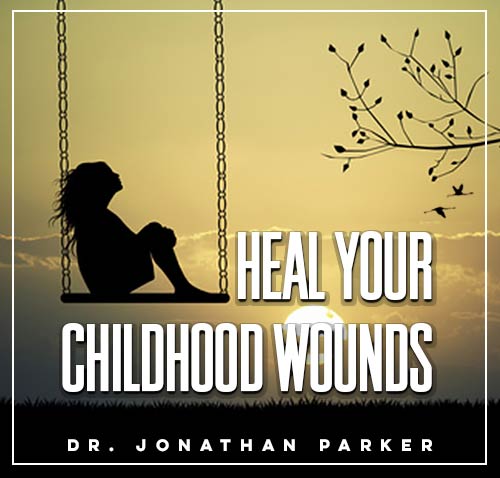Childhood Emotional Liberation: Find Inner Happiness

Before diving in, please note: This post is for informational purposes only. If you’d like to know more about how we approach topics, feel free to check out our friendly Disclaimer Page.
Hey there, amazing readers! 🖐️ Just a quick note: yes, we know there are a lot of ads here. Trust us, we get it—it’s not the prettiest look, but they help us keep this blog alive and kicking. Those pesky little ads cover the costs of all the behind-the-scenes magic, from hosting and tech stuff to creating content we hope you’ll love.
We’re committed to delivering quality posts, and your support (even just sticking around despite the ads) means everything to us. So, bear with us, and thanks for helping us keep the good vibes rolling. Now, on to the fun stuff! 😉
TRANSLATE BUTTON AT THE END OF THE ARTICLE
A Quick Overview
Childhood emotional liberation plays a crucial role in the overall well-being and happiness of children.
It involves freeing oneself from negative emotions and embracing positive feelings, leading to a healthier mindset and emotional balance.
By understanding and nurturing emotional liberation in children, parents and caregivers can help them develop resilience, emotional intelligence, and inner happiness.
This article explores the importance of emotional freedom in childhood, techniques for encouraging inner happiness, and ways to promote healthy emotional expression in kids.
Understanding Childhood Emotional Liberation
Childhood emotional liberation refers to the process of allowing children to express their emotions freely and authentically, without fear of judgment or repression.
It involves creating a safe space for children to explore and understand their feelings, leading to a sense of emotional freedom and empowerment.
Emotional liberation in childhood is essential for building self-esteem, confidence, and healthy relationships with others.
By encouraging children to acknowledge and accept their emotions, parents and caregivers can help them develop emotional resilience and coping skills.
Importance of Emotional Freedom in Childhood
Emotional freedom in childhood is crucial for children’s mental health and well-being.
When children are allowed to express their emotions without inhibition, they learn to navigate their feelings effectively and develop emotional intelligence.
Emotional freedom also enables children to build strong interpersonal relationships, communicate effectively, and cope with stress and challenges.
By promoting emotional liberation in childhood, parents and caregivers can help children develop a positive self-image, better manage their emotions, and lead happier and more fulfilling lives.
Exploring Inner Happiness in Children
Inner happiness is a state of contentment, peace, and fulfillment that comes from within.
Children who experience emotional liberation are more likely to find inner happiness, as they are able to process their emotions and develop a positive outlook on life.
Inner happiness in children is characterized by resilience, optimism, and a sense of purpose.
By fostering emotional liberation in childhood, parents and caregivers can help children cultivate a deep sense of inner happiness that will sustain them throughout their lives.
Factors Influencing Emotional Liberation
Several factors can influence childhood emotional liberation, including parental attitudes towards emotions, social environment, and individual temperament.
Children are more likely to experience emotional liberation when they feel supported, accepted, and validated by their parents and caregivers.
A nurturing and empathetic environment that encourages open communication and emotional expression can foster emotional liberation in children.
Additionally, children’s own temperament and personality traits can impact their ability to process and regulate emotions, affecting their emotional liberation.
Techniques for Encouraging Inner Happiness
There are several techniques that parents and caregivers can use to encourage inner happiness in children:
Encourage emotional expression: Create a safe space for children to express their feelings without judgment.
Teach mindfulness and self-awareness: Help children develop an awareness of their emotions and how to manage them.
Foster positive relationships: Encourage healthy social interactions and relationships with peers and adults.
Promote resilience and problem-solving skills: Teach children how to cope with challenges and setbacks effectively.
Encourage gratitude and positive thinking: Help children develop a positive outlook on life and focus on the good things in their lives.
Nurturing Emotional Intelligence in Children
Emotional intelligence is the ability to recognize, understand, and manage one’s own emotions and the emotions of others.
Nurturing emotional intelligence in children is essential for their social and emotional development.
By teaching children empathy, self-awareness, and effective communication skills, parents and caregivers can help them build strong emotional intelligence.
Emotional intelligence enables children to navigate social situations, build healthy relationships, and make informed decisions based on their emotions and the emotions of others.
Overcoming Emotional Barriers in Childhood
Children may face various emotional barriers that prevent them from experiencing emotional liberation, such as fear, shame, and insecurity.
Discover "SUPERFOODS: The Key to Health and Balance🥗" 🌿🌺
Parents and caregivers can help children overcome these barriers by providing unconditional love and acceptance, validating their feelings, and teaching them healthy coping mechanisms.
By addressing emotional barriers in childhood, children can learn to process and express their emotions in a healthy and constructive way, leading to emotional liberation and inner happiness.
Building Resilience and Emotional Strength
Resilience is the ability to bounce back from adversity and cope with challenges effectively.
Building resilience in children is essential for their emotional well-being and mental health.
By teaching children how to manage stress, regulate emotions, and problem-solve, parents and caregivers can help them develop resilience and emotional strength.
Resilient children are better equipped to face life’s ups and downs, overcome obstacles, and thrive in difficult situations.
Emotional liberation plays a crucial role in building resilience and emotional strength in children.
Impact of Emotional Liberation on Overall Well-being
Emotional liberation has a profound impact on children’s overall well-being, influencing their mental, emotional, and physical health.
Children who experience emotional liberation are more likely to have higher self-esteem, better emotional regulation, and stronger interpersonal relationships.
Emotional liberation also reduces the risk of mental health issues such as anxiety and depression.
By promoting emotional liberation in childhood, parents and caregivers can help children lead happier, healthier, and more fulfilling lives.
Promoting Healthy Emotional Expression in Kids
Promoting healthy emotional expression in kids involves creating a supportive and nurturing environment where children feel comfortable expressing their feelings.
Parents and caregivers can promote healthy emotional expression by:
Encouraging open communication and active listening
Validating children’s feelings and emotions
Teaching children how to express themselves assertively and respectfully
Modeling healthy emotional expression and regulation
Providing opportunities for children to practice emotional expression through art, play, or journaling
Creating a Safe Space for Emotional Growth
Creating a safe space for emotional growth involves fostering a supportive and empathetic environment where children feel free to explore and express their emotions.
Parents and caregivers can create a safe space for emotional growth by:
Being emotionally available and attentive to children’s needs
Respecting children’s boundaries and autonomy
Providing opportunities for emotional exploration and self-discovery
Setting clear and consistent boundaries to ensure emotional safety
Encouraging children to seek support and guidance when needed
Seeking Professional Help for Emotional Support
In some cases, children may require professional help to address emotional issues and receive the support they need.
Parents and caregivers should seek professional help if children exhibit signs of emotional distress, such as prolonged sadness, anxiety, or behavioral changes.
Mental health professionals, such as therapists, counselors, or psychologists, can provide children with the necessary support, guidance, and interventions to promote emotional liberation and well-being.
Seeking professional help is essential for addressing complex emotional issues and ensuring children’s emotional health and happiness.
Conclusion
Childhood emotional liberation is a critical aspect of children’s emotional well-being and happiness.
By understanding and nurturing emotional liberation in children, parents and caregivers can help them develop resilience, emotional intelligence, and inner happiness.
Promoting healthy emotional expression, creating a safe space for emotional growth, and seeking professional help when needed are essential steps in supporting children’s emotional liberation.
By fostering emotional freedom in childhood, parents and caregivers can empower children to lead happier, healthier, and more fulfilling lives.

The Enlightenment Journey is a remarkable collection of writings authored by a distinguished group of experts in the fields of spirituality, new age, and esoteric knowledge.
This anthology features a diverse assembly of well-experienced authors who bring their profound insights and credible perspectives to the forefront.
Each contributor possesses a wealth of knowledge and wisdom, making them authorities in their respective domains.
Together, they offer readers a transformative journey into the realms of spiritual growth, self-discovery, and esoteric enlightenment.
The Enlightenment Journey is a testament to the collective expertise of these luminaries, providing readers with a rich tapestry of ideas and information to illuminate their spiritual path.
Our Diverse Expertise 🌟
While our primary focus is on spirituality and esotericism, we are equally passionate about exploring a wide range of other topics and niches 🌍📚. Our experienced team is dedicated to delivering high-quality, informative content across various subjects ✨.
To ensure we provide the most accurate and valuable insights, we collaborate with trusted experts in their respective domains 🧑🏫👩🏫. This allows us to offer well-rounded perspectives and knowledge to our readers.
Our blog originally focused on spirituality and metaphysics, but we’ve since expanded to cover a wide range of niches. Don’t worry—we continue to publish a lot of articles on spirituality! Frequently visit our blog to explore our diverse content and stay tuned for more insightful reads.







